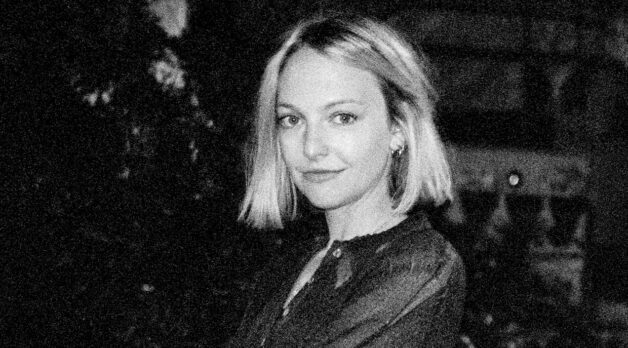Faye Tsakas
 Faye Tsakas
Faye Tsakas

Before the pandemic, Faye Tsakas worked for the distributor FilmRise and then the production company Passage Pictures. “I had a lot of loans coming out of school,” she explains of her pragmatically motivated choice to work in development, acquisitions and packaging. “I had a great time working on steady jobs that allowed me to learn about how the industry worked and to interact with filmmakers. I spent many years paying off loans and saving money and was sent to festivals in my acquisitions job—almost like a paid film school.” After she lost her job during the pandemic, Tsakas moved in with her partner’s family on Long Island and finally had time to explore her own creative instincts. “I wasn’t paying rent and was getting unemployment,” she recalls. Taking a gear recommendation from filmmaker Adinah Dancyger, she “bought a DVX100B for $200 on eBay and started shooting a ton. I credit that camera—that’s really what I learned to be a filmmaker on.”
One of the first products of that self-tutoring period was Class of 2020, a briskly sketched record of a pandemic-era parking lot graduation ceremony. Tsakas sent the short as part of her application to Stanford’s two-year graduate documentary program, which she gravitated to both because it was tuition-free and because of the school’s reputation for teaching an “observational mode of documentary filmmaking” that aligned with directors—including Brett Story, Jessica Kingdon and Chantal Akerman—whose work she’d developed an affinity for. “I’m really interested in the environmental portrait–style interview,” she explains, “where the background says just as much about the subject as what the subject is saying, where we stay in a take long enough for your eye to travel the frame and for new details to be revealed as time passes.”
Co-directed with Enrique Pedráza-Botero, Alpha Kings was shot by Tsakas (who regularly acts as her own DP) during her first year at Stanford and premiered at this year’s International Film Festival Rotterdam. The short’s supremely confident subjects are young men, their average age around 19, who practice the art of “findom” online, abusively urging fans to give them money during sexualized webcam sessions (“Worship these perfect fuckin’ feet!”). Outside, the empty streets of suburban Montgomery, Texas, glower with sunlight, while, inside their suburban house, the young men rack up amounts of money that stagger even them. They’re cheerful in their exploitation of people who can afford it, which Tsakas observed with sympathy during the eight days of shooting: “Watching them, I was like, ‘Should I make a foot Twitter to pay for my filmmaking craft?’”
Currently in post-production, Tsakas’s solo short Christmas, Every Day trains a similarly long-take gaze on two aspiring pre-teen influencers modeling clothes under their mother’s guidance. There’s an unavoidably unnerving ease with which they present themselves for the camera and muse about how their self-branding is empowering. “I’m interested in examining the form of feminism that seems to suggest that by commodifying ourselves, we instill confidence and reclaim agency in a patriarchal system,” Tsakas says. The family was excited about the film, as are the young men of Alpha Kings: “They’re stoked. The boys are really happy about the coverage of it and want us to expand it into a longer project. A couple of them want to be influencers. They see this as a way of gaining notoriety.” While Tsakas’s gaze in both shorts could register as pitiless, she notes that she would “never want to work with anyone who isn’t super-excited to collaborate and have their lives showcased onscreen. Moving forward, I want to veer away from working with one group of subjects or family in a longer-form project and work more with vignettes or showcasing different things and places to build a more comprehensive portrait within a theme. Both Enrique and I have a strong mutual interest in documenting culture in the context of late-stage capitalist America, and our sensibilities really align. We had a seamless and inspiring partnership, and we hope to find future collaborations.”
While working as a documentary DP for other filmmakers, Tsakas is also drawing on her professional background by working as an independent producer on projects, including expanding Adam Meeks’s 2020 Berlinale-premiering short Union County into a feature. “These disparate elements and roles are all part of a larger filmmaking practice. Working on different sides of the process is part of a holistic approach. It’s still scary and vulnerable as a filmmaker, but I’m optimistic and excited!”—VR/Image: Stefan Weinberger
